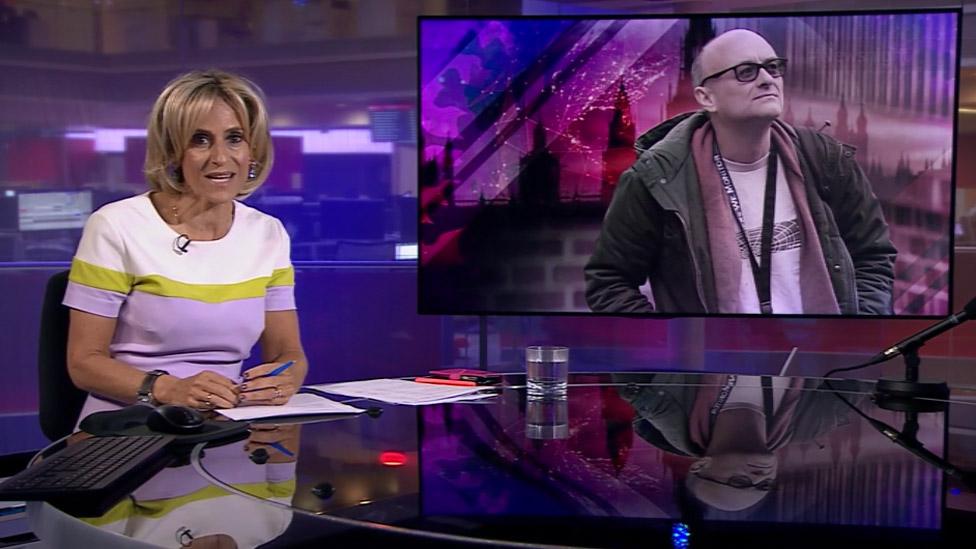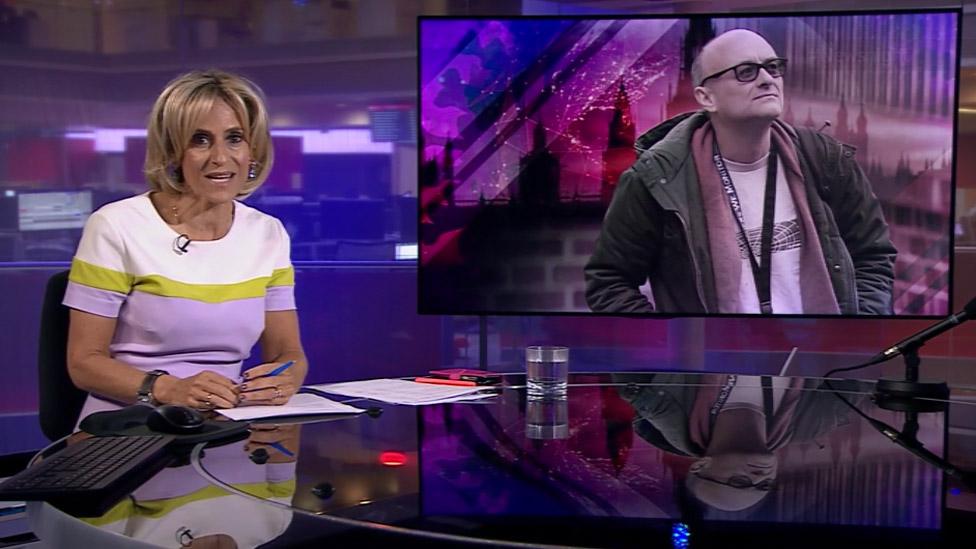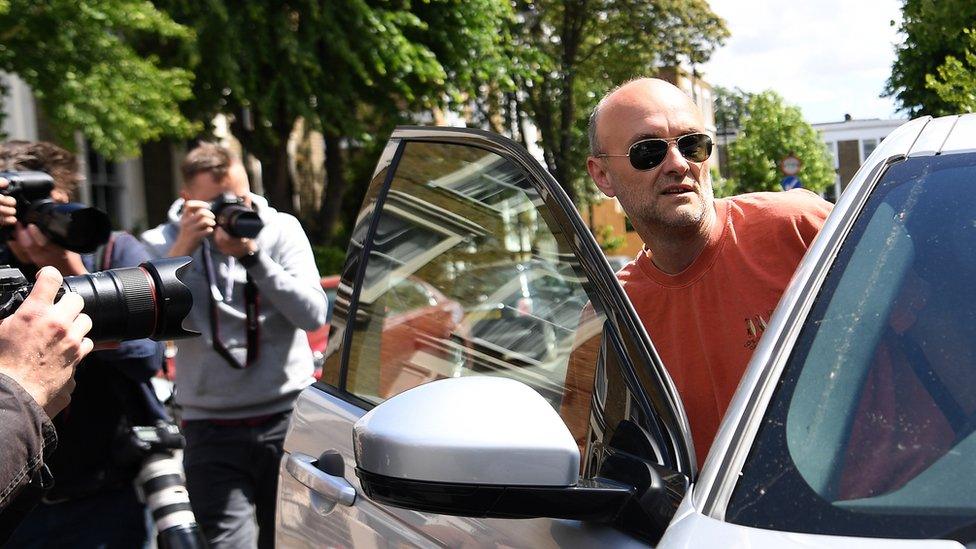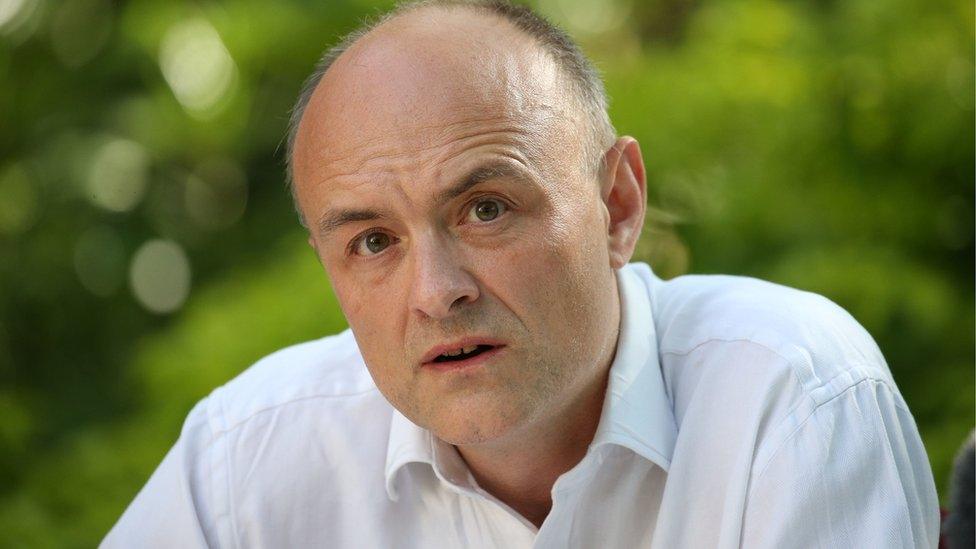No Ofcom action over Maitlis's Cummings remarks on Newsnight
- Published

The BBC has said Emily Maitlis's monologue "did not meet the required standards on accuracy or impartiality"
Media regulator Ofcom will not take action over BBC Newsnight host Emily Maitlis's controversial introduction about Dominic Cummings last May.
Maitlis began by saying "the country can see" the prime minister's then aide had "broken the rules" by driving 260 miles during lockdown.
The BBC admitted this "did not meet our standards of due impartiality".
Ofcom said Maitlis's monologue "could be perceived" as her personal view, but that it would not take any action.
But it has warned the corporation that presenters must not "inadvertently give the impression" of giving their personal opinions.
After the BBC Two news programme was broadcast on 26 May, the BBC received more than 23,000 complaints that Maitlis's introduction was biased against Boris Johnson's most senior advisor, who had travelled to County Durham from London.
'Different viewpoints'
The Ofcom ruling said the programme went on to include "an appropriate range of significant views" after her opening remarks.
A spokesperson for the watchdog said: "We consider the programme's opening monologue could be perceived as Ms Maitlis's personal view on a matter of major political controversy.
"But, having assessed the programme as a whole, we also found that a range of different viewpoints were given appropriate weight, including those of the UK government.
"Given this, and taking into account the BBC's acceptance under its own complaints processes that it fell short of its editorial guidelines, we won't be taking further action.
"We have, however, reminded the BBC that when preparing programme introductions in news programmes, to capture viewers' attention - particularly in matters of major political controversy - presenters should ensure that they do not inadvertently give the impression of setting out personal opinions or views."
The BBC has conceded the script "did not meet the required standards on accuracy or impartiality" and "risked giving the perception that the BBC was taking sides and voicing an opinion on a controversial matter".
But the broadcaster did not take any further action. Ofcom said it had received five complaints about the BBC's handling of the matter.
Two were from people who were unhappy with the original programme and didn't think the BBC's subsequent response went far enough. The other three thought the programme was accurate and fair, and were unhappy that the BBC had decided it wasn't.
Related topics
- Published28 May 2020

- Published27 May 2020

- Published28 May 2020

- Published25 May 2020
